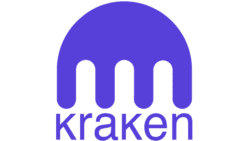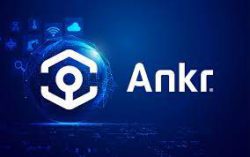Top 10 Leading Blockchain Firms Hiring Kickass Remote Workers
Blockchain is a decentralized digital ledger technology that allows multiple parties to maintain a shared, immutable record of transactions, agreements, or any other form of information. It was first introduced in 2008 by an anonymous person or group of people using the pseudonym Satoshi Nakamoto as the underlying technology behind the cryptocurrency Bitcoin.
At its core, a blockchain consists of a chain of blocks, where each block contains a list of transactions or data. These blocks are linked together using cryptographic hashes, forming a continuous and tamper-resistant chain of information. One of the key characteristics of blockchain is its decentralized nature, meaning it operates on a network of computers (nodes) spread across the globe, rather than relying on a central authority.
The decentralized nature of blockchain is achieved through a consensus mechanism, which allows participants in the network to agree on the validity of transactions and the order in which they are added to the blockchain. The most commonly used consensus mechanism is called “proof-of-work,” where nodes in the network compete to solve complex mathematical puzzles to validate and add new blocks. This process requires substantial computational power, making it difficult for malicious actors to manipulate the blockchain.
Once a block is added to the blockchain, it becomes permanent and cannot be altered retroactively without the consensus of the majority of the network participants. This immutability makes blockchain highly secure and resistant to fraud or unauthorized changes. Each block contains a reference to the previous block, creating a chronological chain of transactions that can be traced back to the very first block, often referred to as the “genesis block.”
Blockchain technology has evolved beyond its original application in cryptocurrencies. It has found applications in various industries, including finance, supply chain management, healthcare, voting systems, and more. Blockchain can provide transparency, security, efficiency, and trust in processes where multiple parties need to collaborate and share information without relying on intermediaries.
In addition to public blockchains like Bitcoin, there are also private and consortium blockchains. Private blockchains restrict access and participation to a specific group of known entities, offering higher privacy and control over the network. Consortium blockchains are governed by a group of organizations, allowing for shared control and increased scalability while maintaining some degree of decentralization.
Smart contracts are another crucial aspect of blockchain technology. These are self-executing contracts with predefined rules and conditions embedded within the blockchain. Smart contracts automatically execute actions when specific conditions are met, eliminating the need for intermediaries and reducing the risk of fraud.
However, blockchain technology is not without its challenges. Issues such as scalability, energy consumption (in the case of proof-of-work consensus), regulatory frameworks, and interoperability between different blockchain networks need to be addressed for wider adoption and practical implementation.
Despite these challenges, blockchain technology has the potential to revolutionize various industries by enabling trust, security, and transparency in a decentralized manner. Its ability to provide an immutable and distributed ledger has sparked innovation and the exploration of new use cases, leading to a broader understanding of its potential impact on society and business processes.
2/ Binance Labs is a venture capital firm founded in 2017 by Changpeng Zhao.
This company is the venture arm of Binance, existing to grow the blockchain and crypto. pic.twitter.com/1wYGzwyh2g
— defizard (@belizardd) June 18, 2023
Importance of Blockchain for the economy
Blockchain technology holds significant importance for the economy due to its potential to transform various sectors and bring about numerous benefits. Here are some key reasons why blockchain is important for the economy:
1. Enhanced Security and Trust: Blockchain’s decentralized nature and cryptographic techniques provide enhanced security and trust. Transactions recorded on the blockchain are transparent, tamper-resistant, and verifiable by all participants. This eliminates the need for intermediaries, reduces the risk of fraud and manipulation, and fosters trust in economic interactions.
2. Efficient and Transparent Transactions: Blockchain facilitates faster and more efficient transactions by eliminating the need for multiple intermediaries, paperwork, and manual reconciliation. It enables peer-to-peer transactions, streamlines processes, and reduces costs associated with intermediaries, paperwork, and record-keeping. This efficiency benefits businesses, consumers, and the overall economy.
3. Financial Inclusion: Blockchain technology has the potential to extend financial services to the unbanked and underbanked populations globally. By leveraging blockchain-based digital currencies, individuals without access to traditional banking services can participate in economic activities, access financial services, and engage in cross-border transactions more easily and securely.
4. Supply Chain Optimization: Blockchain can revolutionize supply chain management by providing end-to-end visibility, transparency, and traceability of goods and transactions. This enables efficient tracking of products, reduces fraud, counterfeiting, and ensures compliance with regulations. Improved supply chain management results in cost savings, faster delivery times, enhanced product quality, and consumer trust.
5. Smart Contracts and Automation: Blockchain’s smart contract capability enables self-executing contracts with predefined conditions and automated execution. This eliminates the need for intermediaries, reduces administrative costs, and minimizes the risk of contract disputes. Smart contracts can streamline complex business processes, automate compliance, and facilitate the execution of contractual obligations, thereby improving overall economic efficiency.
6. Decentralization and Resilience: The decentralized nature of blockchain makes it less susceptible to single points of failure and hacking attacks. Traditional centralized systems are vulnerable to data breaches and cyberattacks. Blockchain’s distributed ledger architecture ensures redundancy and enhances system resilience, which is crucial for critical economic infrastructure, such as banking, healthcare, and government services.
7. Innovation and Entrepreneurship: Blockchain technology fosters innovation and entrepreneurship by providing a decentralized platform for developing and deploying new applications and services. Startups and businesses can leverage blockchain to create innovative solutions, disrupt traditional business models, and explore new revenue streams. This innovation potential stimulates economic growth, job creation, and technological advancements.
8. International Trade and Cross-Border Payments: Blockchain can revolutionize international trade by enabling secure, transparent, and efficient cross-border transactions. It reduces the complexities, costs, and delays associated with traditional banking systems, currency conversions, and settlement processes. Blockchain-based solutions can facilitate faster and cheaper cross-border payments, improve liquidity, and enhance financial inclusion for businesses and individuals involved in global trade.
9. Data Privacy and Ownership: Blockchain technology can empower individuals with control over their personal data. It enables secure storage, encryption, and sharing of data, granting users the ability to determine who can access and use their information. This shift in data ownership and privacy can mitigate data breaches, promote user consent, and encourage responsible data management practices.
10. Economic Resilience and Trust in Institutions: Blockchain’s transparency, immutability, and decentralization can help restore trust in institutions and public services. By providing verifiable and auditable records, blockchain reduces corruption, fraud, and the misuse of public resources. This, in turn, can bolster economic resilience, attract investments, and improve governance structures.
Overall, blockchain technology has the potential to drive economic growth, improve efficiency, enhance security, foster innovation, and promote financial inclusion. Its decentralized and transparent nature opens up new possibilities, disrupts traditional systems, and enables economic interactions in a more efficient, secure, and trustworthy manner.
Also read: Top 13 Venture Capital Firms Are Investing In Blockchain Technology
Top 10 leading Blockchain firms hiring remote workers
The blockchain industry is growing rapidly, and with it, the demand for skilled blockchain professionals. Many blockchain firms are now hiring remote workers, which gives job seekers the flexibility to work from anywhere in the world.
Here are 10 of the top blockchain firms hiring remote workers:
- Chainlink Labs Chainlink Labs is a blockchain development firm that provides secure, reliable, and scalable smart contract solutions. They are hiring for a variety of remote positions, including software engineers, data scientists, and product managers.

- Circle Internet Financial Circle Internet Financial is a financial technology company that provides cryptocurrency-related services. They are hiring for a variety of remote positions, including software engineers, product managers, and marketing professionals.
- CoinList CoinList is a platform that facilitates the issuance, listing, and trading of digital assets. They are hiring for a variety of remote positions, including software engineers, product managers, and marketing professionals.
- IOHK IOHK is a research and development company that is focused on developing the Cardano blockchain platform. They are hiring for a variety of remote positions, including software engineers, researchers, and designers.
- Republic Republic is a crowdfunding platform that allows people to invest in early-stage companies. They are hiring for a variety of remote positions, including software engineers, product managers, and marketing professionals.
- Kraken Kraken is a cryptocurrency exchange that provides a variety of services to traders and investors. They are hiring for a variety of remote positions, including software engineers, product managers, and customer support representatives.
- BitGo BitGo is a digital asset custody company that provides secure storage and management services for cryptocurrencies. They are hiring for a variety of remote positions, including software engineers, security engineers, and compliance officers.

- Blockdaemon Blockdaemon is a blockchain infrastructure company that provides node hosting, staking, and other services for businesses and individuals. They are hiring for a variety of remote positions, including software engineers, DevOps engineers, and sales representatives.
- Ankr Ankr is a decentralized cloud computing platform that provides infrastructure for blockchain applications. They are hiring for a variety of remote positions, including software engineers, DevOps engineers, and marketing professionals.
- Status Status is a mobile operating system that is built on top of the Ethereum blockchain. They are hiring for a variety of remote positions, including software engineers, product managers, and designers.
These are just a few of the many blockchain firms that are hiring remote workers. If you are interested in a career in blockchain, be sure to check out these and other companies that are hiring.
Also read: Top 5 Investors In Blockchain Firms In The Past Year
Risks associated with blockchain

While blockchain technology offers numerous benefits, it is important to recognize and understand the risks and challenges associated with its implementation. Here are some key risks associated with blockchain:
1. Scalability and Performance: Blockchain networks face scalability challenges in handling a large number of transactions. As the size of the blockchain increases, the time required to process transactions and reach consensus may also increase, potentially leading to slower transaction speeds. This scalability issue needs to be addressed to ensure the widespread adoption of blockchain technology.
2. Energy Consumption: Some blockchain networks, particularly those that use proof-of-work consensus mechanisms, require significant computational power and energy consumption. This energy-intensive process contributes to environmental concerns and has raised questions about the sustainability of certain blockchain implementations. Efforts are being made to develop more energy-efficient consensus mechanisms.
3. Privacy Concerns: While blockchain provides transparency and immutability, it poses challenges in terms of privacy. Public blockchains store transaction data that is accessible to all participants, which may not be desirable for certain applications where sensitive information needs to be protected. While techniques such as encryption and private or consortium blockchains can address some privacy concerns, careful consideration is needed when dealing with personal or confidential data on a blockchain.
4. Regulatory and Legal Challenges: Blockchain technology is still evolving, and regulatory frameworks have not fully caught up with its potential applications. The decentralized nature of blockchain raises questions about jurisdiction, compliance, and legal enforcement. Issues related to data protection, identity verification, smart contract legality, and taxation require careful consideration and regulatory clarity to ensure appropriate usage and to address potential risks.
5. Governance and Consensus Risks: Blockchain networks rely on consensus mechanisms to validate transactions and maintain the integrity of the ledger. However, reaching consensus among multiple participants can be challenging, especially in situations where conflicting interests arise. Additionally, the concentration of mining power in certain consensus mechanisms may lead to centralization risks, potentially compromising the decentralized nature of blockchain networks.
6. Smart Contract Vulnerabilities: Smart contracts are susceptible to coding errors, bugs, and vulnerabilities that could be exploited by malicious actors. Once deployed on a blockchain, smart contracts are immutable and automatically executed, meaning that any vulnerabilities or errors cannot be easily corrected. Auditing, testing, and thorough code reviews are essential to minimize the risks associated with smart contract vulnerabilities.
7. Interoperability and Standardization: Blockchain technology has witnessed the emergence of various blockchain platforms and protocols, each with its own characteristics and functionalities. Lack of interoperability and standardized protocols can hinder the seamless integration and communication between different blockchain networks, limiting their potential and creating fragmentation in the ecosystem.
8. Adoption and Integration Challenges: Widespread adoption of blockchain technology requires significant changes in existing systems, business processes, and regulatory frameworks. Implementing blockchain at scale requires collaboration among multiple stakeholders, overcoming resistance to change, and addressing the technical and operational challenges associated with integration with legacy systems.
9. Perception and Reputation Risks: Blockchain technology is often associated with cryptocurrencies, which have faced criticism and scrutiny due to issues such as fraud, money laundering, and market volatility. This negative perception can impact the broader adoption of blockchain technology in various industries, even though the technology itself may offer significant benefits beyond cryptocurrencies.
It is crucial to address these risks and challenges through continuous research, development, and collaboration between industry, regulators, and academia. By doing so, the potential of blockchain technology can be harnessed while mitigating its inherent risks.
Future of Blockchain

The future of blockchain holds immense potential for transforming industries and revolutionizing various aspects of our lives. Here are some key trends and possibilities that could shape the future of blockchain:
1. Mainstream Adoption: Blockchain technology is gradually moving from experimentation to practical implementation. As the technology matures, more industries and organizations are recognizing its value and exploring its potential applications. We can expect increased mainstream adoption across sectors such as finance, supply chain management, healthcare, government, energy, and more.
2. Interoperability and Standardization: As blockchain ecosystems continue to evolve, the need for interoperability and standardization becomes crucial. Efforts are being made to develop protocols and frameworks that enable seamless integration and communication between different blockchain networks. Interoperability will allow the transfer of assets and data across multiple blockchains, enhancing the efficiency and scalability of decentralized applications.
3. Hybrid Approaches: While public blockchains like Bitcoin and Ethereum have gained significant attention, there is growing interest in hybrid approaches that combine the benefits of public and private blockchains. Hybrid blockchains provide a balance between transparency and privacy, allowing organizations to maintain control over certain data while leveraging the advantages of a decentralized network.
4. Blockchain as a Service (BaaS): Blockchain-as-a-Service platforms are emerging, providing infrastructure and tools for organizations to build and deploy blockchain applications without the need for extensive in-house development. BaaS offerings simplify the adoption process, lower entry barriers, and enable organizations to focus on their specific use cases, accelerating the pace of blockchain adoption.
5. Enhanced Scalability and Performance: Scalability has been a significant challenge for blockchain networks, particularly public blockchains. Solutions such as layer-2 protocols (e.g., Lightning Network, Plasma) and sharding techniques are being explored to improve scalability, increase transaction throughput, and reduce costs. These advancements will enable blockchain to handle a larger volume of transactions and support more extensive applications.
6. Integration with Emerging Technologies: Blockchain technology has synergies with other emerging technologies such as artificial intelligence (AI), Internet of Things (IoT), and decentralized finance (DeFi). Integration with AI can enable smarter and automated decision-making based on blockchain data. IoT devices can leverage blockchain for secure and transparent data exchange, while DeFi applications are leveraging blockchain to revolutionize traditional financial services.
7. Central Bank Digital Currencies (CBDCs): Central banks around the world are exploring the concept of issuing digital currencies backed by their respective governments. CBDCs would leverage blockchain technology to provide a digital form of fiat currency, offering benefits such as faster transactions, improved financial inclusion, and enhanced monetary policy implementation.
8. Governance and Sustainability: As blockchain networks grow and become more prominent, the importance of governance and sustainability increases. Efforts are underway to establish frameworks for blockchain governance, including consensus mechanisms, decision-making processes, and dispute resolution mechanisms. Sustainability concerns related to energy consumption and environmental impact are also being addressed through the development of energy-efficient consensus mechanisms and the use of renewable energy sources.
9. Blockchain and Decentralized Identity: Blockchain has the potential to revolutionize identity management by providing individuals with greater control over their personal data. Decentralized identity solutions built on blockchain can enable secure and verifiable digital identities, reducing identity theft, streamlining KYC processes, and enabling seamless cross-border identification.
10. Social Impact and Humanitarian Applications: Blockchain technology can have a significant impact on society and humanitarian efforts. It can facilitate transparent and traceable charitable donations, improve supply chain transparency for fair trade and ethical sourcing, enable secure and efficient distribution of aid in crisis situations, and empower underserved populations with access to financial services and digital identities.
It is important to note that while the potential of blockchain is vast, its widespread adoption and realization of these future trends will require addressing challenges such as scalability, regulatory frameworks, privacy concerns, and interoperability. Collaboration between industry players, regulators, and technology communities will be essential in shaping the future of blockchain and unlocking its full potential.
https://www.youtube.com/watch?v=enckX9l7JKE&pp=ygUUdG9wIGJsb2NrY2hhaW4gZmlybXM%3D
Stay informed with daily updates from Blockchain Magazine on Google News. Click here to follow us and mark as favorite: [Blockchain Magazine on Google News].
Get Blockchain Insights In Inbox
Stay ahead of the curve with expert analysis and market updates.
latest from tech
Disclaimer: Any post shared by a third-party agency are sponsored and Blockchain Magazine has no views on any such posts. The views and opinions expressed in this post are those of the clients and do not necessarily reflect the official policy or position of Blockchain Magazine. The information provided in this post is for informational purposes only and should not be considered as financial, investment, or professional advice. Blockchain Magazine does not endorse or promote any specific products, services, or companies mentioned in this posts. Readers are encouraged to conduct their own research and consult with a qualified professional before making any financial decisions.

 Bitcoin
Bitcoin  Ethereum
Ethereum  Tether
Tether  XRP
XRP  Solana
Solana  Dogecoin
Dogecoin  USDC
USDC  Lido Staked Ether
Lido Staked Ether  Cardano
Cardano  TRON
TRON  Avalanche
Avalanche  Toncoin
Toncoin  Chainlink
Chainlink  Wrapped stETH
Wrapped stETH  Shiba Inu
Shiba Inu  Wrapped Bitcoin
Wrapped Bitcoin  Sui
Sui  Hedera
Hedera  Stellar
Stellar  Polkadot
Polkadot  WETH
WETH  Bitcoin Cash
Bitcoin Cash  LEO Token
LEO Token  Hyperliquid
Hyperliquid  Litecoin
Litecoin  Uniswap
Uniswap  Pepe
Pepe  Wrapped eETH
Wrapped eETH  NEAR Protocol
NEAR Protocol  Ethena USDe
Ethena USDe  USDS
USDS  Aave
Aave  Internet Computer
Internet Computer  Aptos
Aptos  Cronos
Cronos  POL (ex-MATIC)
POL (ex-MATIC)  Mantle
Mantle  Ethereum Classic
Ethereum Classic  Render
Render  WhiteBIT Coin
WhiteBIT Coin  Monero
Monero  Bittensor
Bittensor  MANTRA
MANTRA  Dai
Dai  Artificial Superintelligence Alliance
Artificial Superintelligence Alliance  Arbitrum
Arbitrum  Filecoin
Filecoin 







